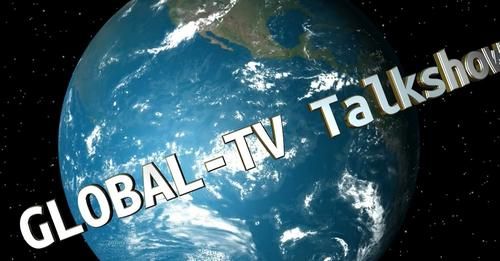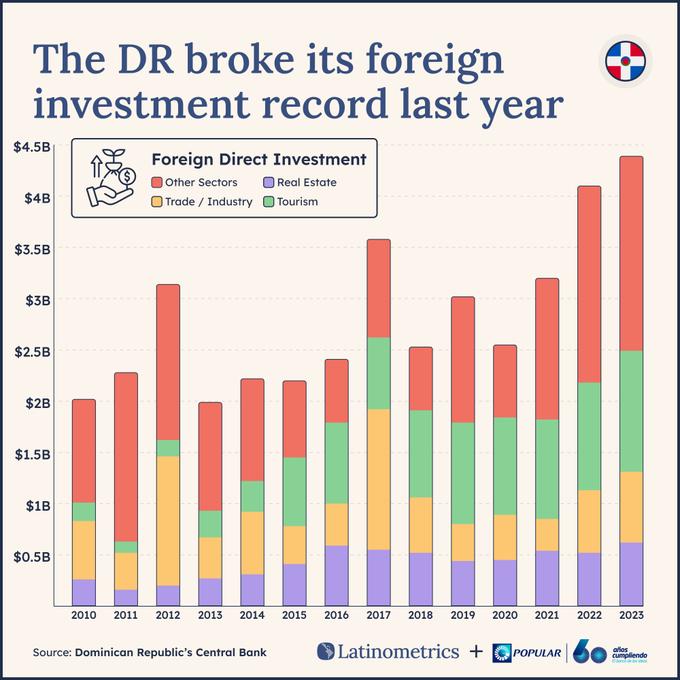

We are LINKMAKERS™ please register 99 USD speak, connect, you WIN ! I publish your blog/company news in GlobalBusinessNews.net I publish your LOGO-link this page 365/7-24 Global PR I invite you; 1:1 Interview on GlobalTVtalkshow in AUG I introduce you, make new connections You get program-link for your personal use forever! speak/panelist; be my guest on a SEP "group" talkshow Contact Ed publisher@globalbusiness.media txt (+1) 619.787.3100
13 AUGUST
LatAm
Global Business News
edition 11
Regional Economic Development
Leads to Talent Development
Memo from Ed
 WELCOME to
WELCOME to
LatAm
Global Business News.
We are also showcasing this wonderful international book shown just below… a new resource, just published. Co-Author STEVEN HOWARD will be featured.
REGISTER (99 USD) TO ATTEND, PARTICIPATE,
SPEAK ABOUT YOUR BRAND, YOUR BUSINESS.
Yes, associate with positive public relations going worldwide via GlobalBusinessNews-TVnetwork.
Publisher’s Courtesy: All corporate practitioners comped.
Thank You Gifts your logo-link on this website + displaying your headshot + linkedin + company news;
be my special guest (free) 1:1 Executive Interview on GlobalTVtalkshow;
You get it all + more.
Please email me publisher@globalbusiness.media
Wonderful, beautiful; the blessed Rio !
source: @Amazingeye55
 America and its ever-expanding number of businesses have dominated global business and trade in recent decades.
America and its ever-expanding number of businesses have dominated global business and trade in recent decades.
While hundreds of books and articles help Americans conduct business outside the United States, surprisingly few resources are available for international executives and managers on how to partner with or do business with Americans.
Partnering Successfully with American Firms closes this gap, sharing insight on how international leaders can establish partnerships with American firms and how to become reliable and desired suppliers, partners, and customers.
American business culture is a unique and powerful force. Those who understand and adapt to it thrive, while those who don’t often struggle. This book provides dozens of tips for understanding how Americans conduct business and why their foundation mindset is often “time is money.”
The authors (Ali Shami and Steven Howard), with their extensive 70 years of combined international business experience, are your trusted guides. They understand the nuances of global business and the potential pitfalls. They know what works and what doesn’t. They know what creates angst, anger, friction, and hurdles between American businesspeople and their counterparts across the globe. Most importantly, they share how to prevent these problems from escalating and causing less-than-optimal outcomes.
Bonus Section: American Idioms
Nearly 100 common American idioms are listed and defined, making Partnering Successfully with American Firms a key reference guide helping global businesspeople understand these often-used phrases that can be confusing for non-Americans.
LatAm’s island nations take home medals; turn heads!
Olympics history!
And don’t worry, this isn’t the millionth story about Snoop Dogg, LeBron James, US gymnastics drama, or the mayor of Paris swimming in the Seine.
No, we had our eyes on 29-year old Adriana Ruano Oliva, a Guatemalan sports shooter who just earned her country its first ever gold medal at the Summer Olympics held in France. What’s crazy is that this wasn’t even her initial sports dream: thirteen years ago, she was training as an Olympic gymnast when a back injury ended her career preemptively and she took up shooting as a sports backup.
This young woman from Guatemala City makes her whole country, her whole region, proud.
Latin American countries may not get the attention that peers like Japan, China, or the United States do at the Olympics. But don’t count out the region for a second.
Big Latin American countries like Brazil and Argentina may send quite a few athletes to the Olympics, but proportionally speaking it’s much smaller players like Puerto Rico, Uruguay, and the Dominican Republic which impress the most. In the case of Puerto Rico, the small US territory has a staggering 15 people headed to Paris for each million of its citizens—far ahead of the competition.
But the Caribbean is not just on fire when it comes to athletic prowess. In taking home medals, too, Latin America’s island nations may surprise you.
Just take a look at Cuba, which has more medals per capita than basically any other country worldwide. Not too shabby.
All in all, the Olympics are a time for bringing nations together through competition, sport, and fair play—as well as the occasional opening ceremony scandal or two.
Whether it be this year in Paris or in four years in Los Angeles, we’re confident Latin America will continue to show up and demonstrate why some of the best surfers, soccer players, and even trap shooters come from the region.


“Like many of their
peers in other emerging markets, Mexicans are becoming increasingly active investors.
The citizens of Latin America’s second-largest economy have seen skyrocketing rates of investment activity in recent years.
This has been particularly the case since the pandemic, as more and more economically active people – those who either currently contribute to the economy or are available to do so – try to grow their wealth through investing.
In 2015, less than 1% of Mexicans held an investor account; fast forward less than a decade and you see over 13%, reflecting a massive shift in just a few short years.”



Much like in trade across the US–Mexico border, motor vehicles serve as the most notable US import by sea from Mexico.
But while the Ports of Houston or Long Beach may see cars from their counterparts in Mexico,
further south it’s all about the commodities.
Making up over 90% of world trade, shipping has been called the life blood of the global economy. When it comes to keeping economies goods flowing and international trade booming, ports are the nerve centers upon which every economy depends.
And there’s no bigger national economy than the United States.
Taking a look at the goods flowing into US ports with, naturally, a Latin American lens.
To do this, we’re using updated data we’ve pulled from our friends over at CargoFax, which uses shipping manifests and port records to compile comprehensive datasets on import activity into the US. Now, we’re just looking at seaports today, so no land ports of entry like in El Paso or San Diego.
And yet, when it comes to Latin America the largest source of imports to the US remains the same: Mexico.

Did you know
Guyana
has the fastest-growing economy of the 21st century?
Here’s the secret behind its explosive growth.
Guyana has had the fastest economic growth in the 21st century.
The small South American country, which officially speaks English and has less than a million inhabitants, has experienced explosive growth only in the last few years.
What caused such an explosion? A discovery of gigantic oil reserves off its coast.
To illustrate the drastic change, consider its exports:
In 2019, Guyana exported zero petroleum products.
Its most significant export product was gold, which accounted for 53% of its $1.7B export economy.
By 2022, oil represented 86% of all exports and alone was worth $16B in export value.
This year, the Texan company Exxon, which operates there, announced that it is producing 645K barrels per day. Now, California’s Chevron wants a piece of the oily pie and is bidding to compete with Exxon.
Guyana’s president Irfaan Ali, who enjoys high approval ratings, has welcomed Chevron’s interest, suggesting it could enhance competition and bring additional investment to the country’s burgeoning oil sector.
GDP per capita doesn’t tell us whether a country’s citizens are becoming wealthy.
But it’s still worth pointing out that in this measure, Guyana now does better than Panama and Chile and, in fact, has doubled Latin America and the Caribbean’s number.
Despite these gains, challenges remain.
The country’s high unemployment rate, while at its lowest in over 30 years, still exceeded 10% in 2023. Moreover, the economic windfall from oil must be carefully managed to ensure long-term prosperity and avoid the pitfalls of resource dependency.
Guyana’s future hinges not just on its oil wealth but also on its ability to diversify its economy, maintain transparent governance, and ensure that the benefits of growth reach all its citizens.





Click here to see what’s on the GlobalBusinessNewsTVnetwork (gtv)








Is Argentina’s Inflation FINALLY Cooling Down?
When Javier Milei assumed the Argentinean presidency in December, he was without a doubt the most polarizing figure in the country’s recent history not named Kirchner.
The libertarian economist won last year’s presidential election on promises to take a chainsaw to the state and restore some semblance of economic normalcy to his country, which has long been plagued by boom-and-bust cycles and hyperinflation.
In particular, fighting inflation and stabilizing the country’s macroeconomic fundamentals was the top priority for Milei and the roughly 14.5M Argentines who put him in office, so let’s check in on where Latin America’s third-largest economy sits today.